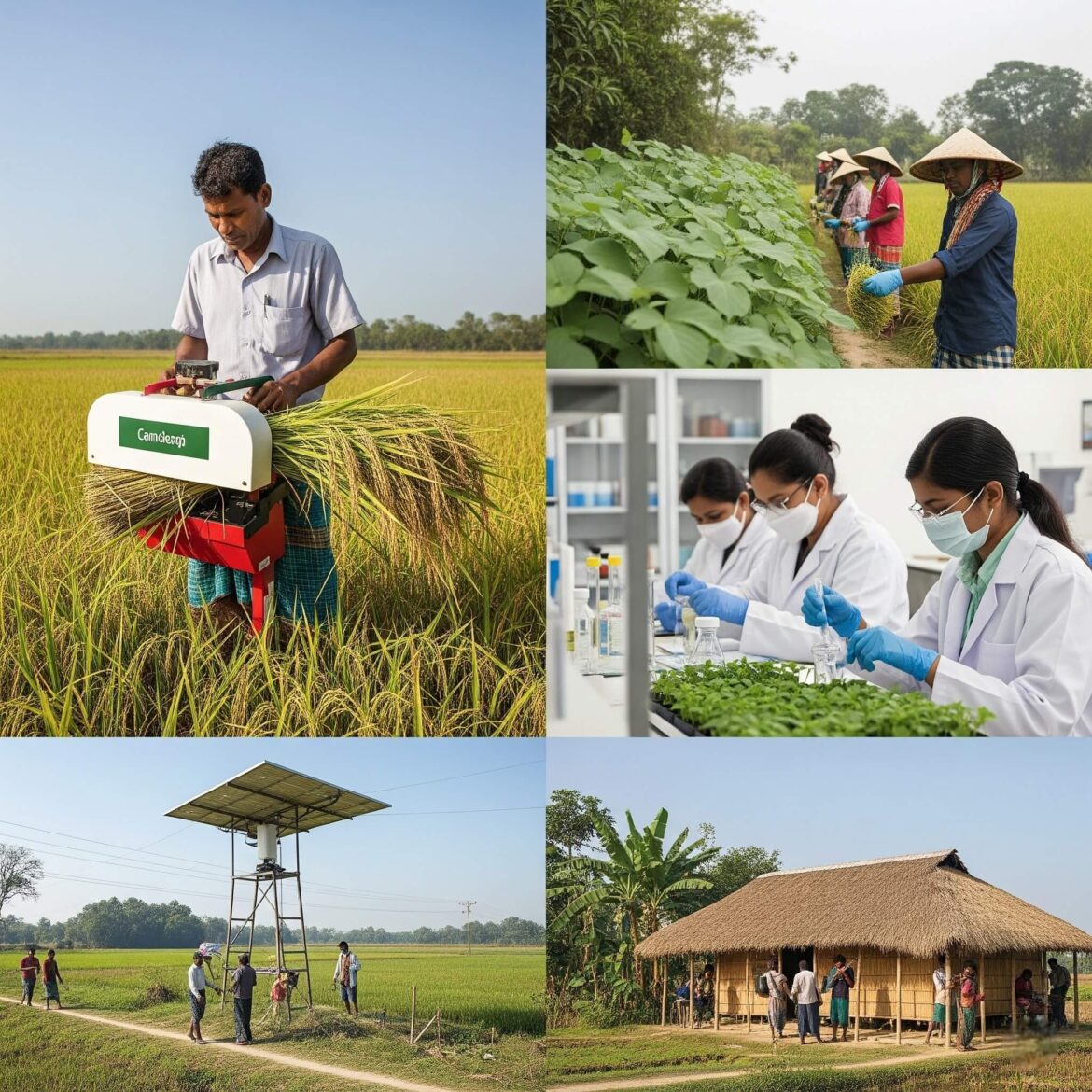Bangladesh remains firmly committed to ensuring food security for its growing population by continually strengthening its agricultural sector. With a combination of technological innovation, sustainable land practices, and strategic policy support, the nation is working to maintain a steady supply of food while protecting its ecological balance. Bangladesh’s economy and everyday life are deeply rooted in agriculture. Millions depend on it for income, and it remains the primary source of nourishment for the population. Recognizing its central role, the government and agricultural institutions are placing increased emphasis on enhancing productivity across existing farmland. These efforts aim to counter the pressures of shrinking cultivable land, urban expansion, and changing climate patterns. Modern agricultural practices are now being widely adopted. Farmers across the country are being trained in advanced cultivation methods that increase yields while reducing input waste. The introduction of high-yield and climate-resilient crop varieties has played a critical role in improving harvest outcomes. These crops not only survive unpredictable weather but also produce more with less water and fertilizer. Bangladesh is also prioritizing smart land management. Urban growth and industrialization often lead to the conversion of farmland, raising concerns about long-term food production capacity. In response, national and local authorities are promoting land zoning and smart development policies that protect fertile land from unplanned conversion. This balanced approach helps support both urban progress and food security goals. Investments in agricultural research and innovation are driving much of this progress. Local universities and agricultural bodies are working to develop technologies suited to the country’s unique climate and soil conditions. Improved irrigation systems, better soil health monitoring, and mobile-based advisory services are all contributing to more efficient farming. These solutions are empowering farmers with the tools and knowledge to make informed decisions that boost productivity and sustainability. Efforts to preserve the broader environment also support agricultural strength. Reforestation projects, improved water conservation, and soil restoration programs are helping create a stable ecological backdrop for farming. Healthy ecosystems contribute to pollination, nutrient cycling, and natural pest control—all essential for long-term agricultural success. Bangladesh’s approach to food security is holistic, addressing both immediate needs and future resilience. The integration of advanced farming methods with sustainable land and environmental practices reflects a thoughtful, long-term strategy. As the country continues to modernize, its agricultural sector remains rooted in both innovation and tradition. Through careful planning, community engagement, and scientific advancement, Bangladesh is building a food system that can nourish its people while preserving its natural resources. This ongoing commitment to sustainability ensures a stronger, greener, and more food-secure future for the nation.
Bangladesh Strengthens Food Security Through Sustainable Agricultural
51


